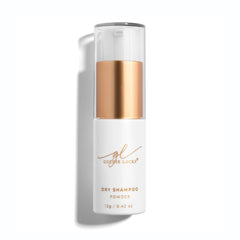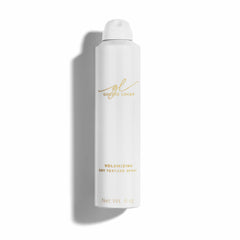During season transitions, the first things that come to our mind are our wardrobes and allergies. However, for some women, this change in season can translate to a harsher reality— loss of hair.
Similar to seasonal allergies, seasonal hair loss happens when the change in temperature puts stress on the scalp and hair follicles, leading to hair strands falling out faster than usual.
We shed up to 80 to 100 strands of hair every day. This is seen as a healthy hair loss because they are going through a cycle of growth, transition, and rest before the process repeats itself.
Noticing more strands on your hairbrush, shower, or bathroom floor than usual can create concern. And this begs the obvious question: Is seasonal hair loss normal?
In Which Season Does Hair Fall the Most?
Seasonal shedding often occurs during the fall months, such as September and October, and at some point in the spring, like April and May.
This timeline often coincides with the second half of the hair growth cycle, where more hairs are shed. For a better understanding, this is an overview of how the human hair cycle works:
- Anagen - Where 85% of your hair is vigorously growing.
- Catagen - In this cycle, hair starts to transition by removing from the bulb and getting ready to shed.
- Telogen - Here, 15% of old hair is resting as new hair strands begin to grow.
- Exogen - New strands eject old hair from the scalp in this cycle. Leading to excessive hair loss.
Is It Normal To Lose Hair Seasonally?
The precise cause of seasonal hair loss is unclear, but research shows that seasonal shedding affects more women compared to men. If you have been properly caring for your hair and scalp, seasonal hair shedding usually shouldn’t be a concern.
The shedding will stabilize back to normal daily levels with time, and hair growth will continue.
But, seasonal hair loss can quickly turn to long-term hair loss if you do not have a good hair and scalp maintenance culture.
Can Seasonal Allergies Cause Hair Loss?

If your scalp is experiencing an allergic reaction during the spring season, it is probably irritated or inflamed. If not treated, the hair within every follicle can become stressed as it continues to grow. This inflammation can lead to breakage or hair loss in severe cases.
Seasonal allergies have a different effect on everyone and are not restricted to respiratory symptoms. The skin can get irritated by dust, pollen, spores, and several other allergens.
Since seasonal allergies also cause systemic inflammation in the body, other skin problems or rashes can spew up at the beginning of spring.
It is not unusual for these skin problems to affect the scalp. And so, if you’re dealing with redness, flaking, or itching on your scalp at this time of the year, your hair may have challenges growing.
The most common scalp problems affecting hair growth are seborrheic dermatitis, eczema, and dandruff. All of which can worsen by fluctuating hormones or extreme humidity changes.
How Long Does Seasonal Hair Loss Last?

Luckily, seasonal hair loss only lasts up to 2-3 months and is mostly during fall.
A viable explanation for this is that:
The hair cycle often coincides with the different seasons of the year. And the shedding phase happens in the fall months.
This is because hairs first go into the Telogen phase, where new strands begin to grow, and when you move into fall, the shedding (exogen) phase commences.
But that’s not the only war your hair is up against; the cold, dry climate leads to scalp irritation, dryness, and itching compounds to it, resulting in seasonal hair loss.
This causes hair follicles to inflate, and hair becomes liable to breakage and excessive shedding, but this should only last for 2 to 3 months.
How To Stop Seasonal Hair Loss
With adequate care and a balanced diet, you can manage hair loss. Here are a few tips on how to stop your hair from shedding and nurture healthy hair growth:
Protect Your Hair
Exposing your hair to too much pollution, dust, sun, and rainwater without adequate protection will make your hair dry, limp, and brittle.
You should always try to protect your hair as much as possible, and if it has been exposed to dust or rain, we highly recommend washing it that same day.
Goldie Locks® Leave-In Conditioner is essential for daily care, strength, and protection. Not only does it protect your hair from harsh aging elements like the sun, heat, and pollution—it deposits long lasting hydration for stronger, smoother, more manageable hair from the inside out.
Don’t Disregard The Conditioner
Remember to condition your hair with a hydrating and nourishing conditioner every wash day after shampooing.
It would help if you also tried to use cold water to rinse off the conditioner. This will help close the pores and maintain a cleaner scalp for a longer time.
Adding deep conditioning treatments to your hair will keep it bouncy, full, and shiny.
Trim Hair Regularly

Regularly trimming and cutting your hair will give it a good shape and style and help to get rid of the annoying dryness and split ends.
This is also an excellent way to boost hair growth.
Control Frizz
Extreme humidity levels can make your hair frizzy, and that can also result in hair shedding. An easy method to control the unruly mane is to apply hair serum on the towel-dried hair. Goldie Locks® Signature Hair Serum instantly calms frizz and flyaways while providing intense nourishment and shine.
Change Your Hairstyles
Keeping your hairstyle fuss-free will help you avoid tangling and frizziness. You should keep your hair covered with a scarf or a cap during extreme weather conditions.
Tight hairstyles can also cause hair loss; rather than wearing your hair up all the time, try letting your mane flow freely.
Detangle To Prevent Breakage

Ensure your hair is wet when detangling, and always use a wide-toothed comb. Start combing from the tip, then move up gently to the roots to prevent breakage. Goldie Locks® Leave-In Conditioner will be your new must-have hair care product when it comes to detangling hair and preventing future tangles.
Eat a Balanced Diet

You should adhere to a balanced diet to boost your hair growth and maintain hair quality. Hair is composed of keratin, a protein essential for growth.
Reach your daily consumption of protein levels, and don’t skip fruits, fatty acids, and veggies as they are essential nutrients your hair follicles feed on and your hair cells require to divide and enhance growth.
Take Your Daily Vitamins

It’s common for us to move indoors as the temperatures cool, it’s a thing among humans, and one consequence is the deprived levels of vitamin D that help regulate the production of keratin.
An ideal technique to stop seasonal hair loss and tackle this natural event is to take vitamin D supplements during cold weather.
It’s best also to include vitamins A, B, C, iron, calcium, magnesium, and zinc in your diet to help you stay healthy and strong.
Strengthen Hair From The Root
A proven method to stop hair loss is using Goldie Locks® luxury hair care products and supplements to retain healthy hair and reduce seasonal shedding.
If you’d like to receive premium hair care tips straight into your inbox, subscribe to our newsletter so you don’t miss out on any updates.




























